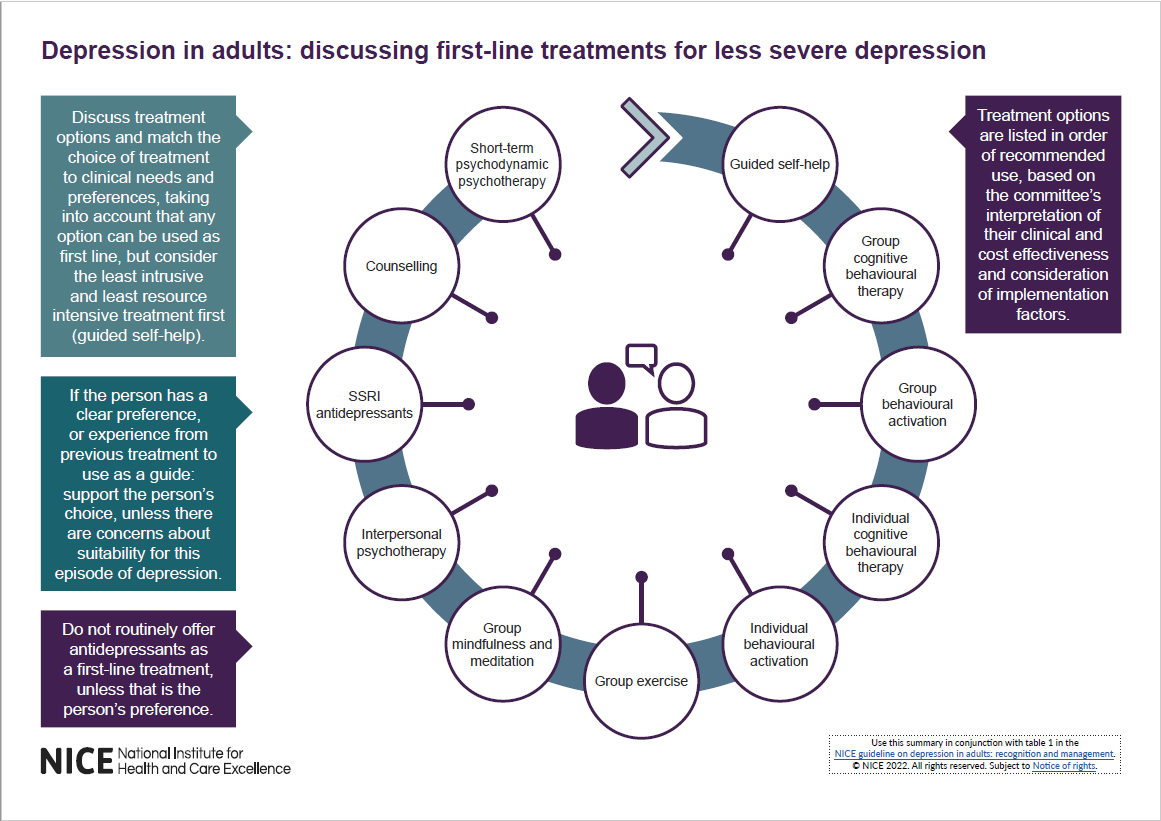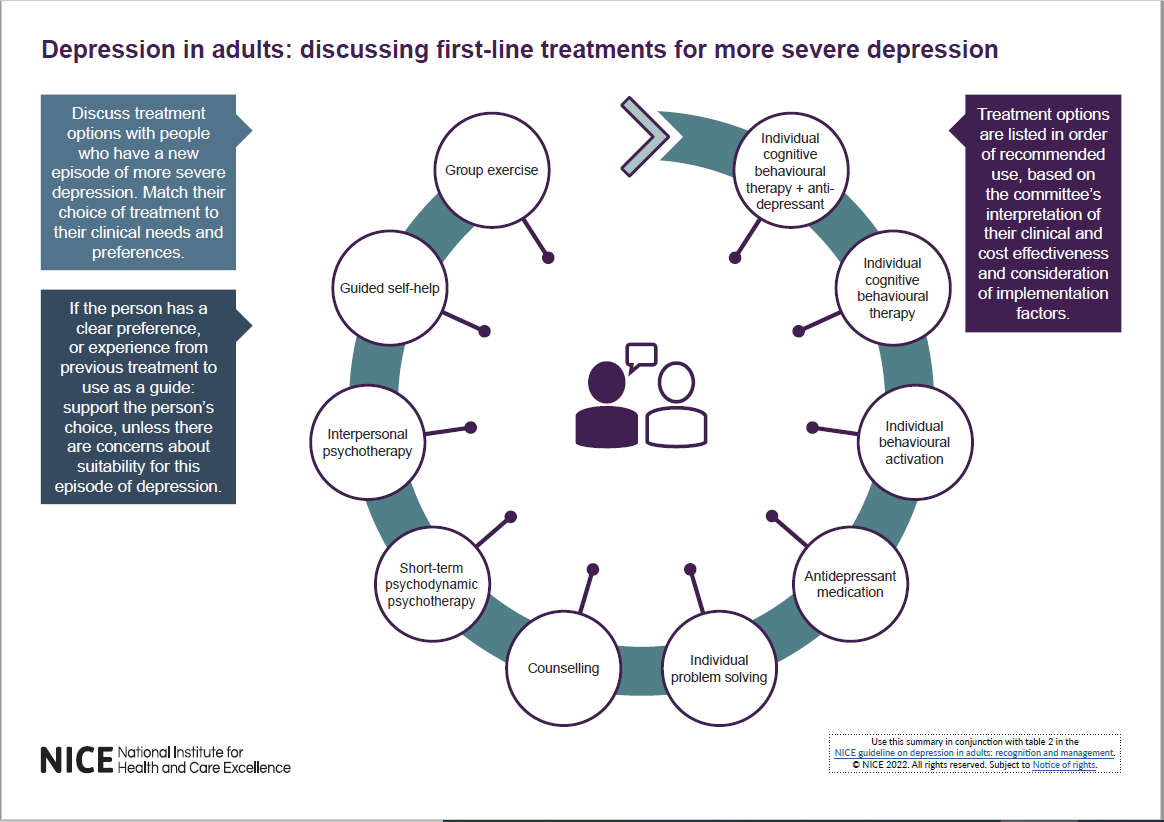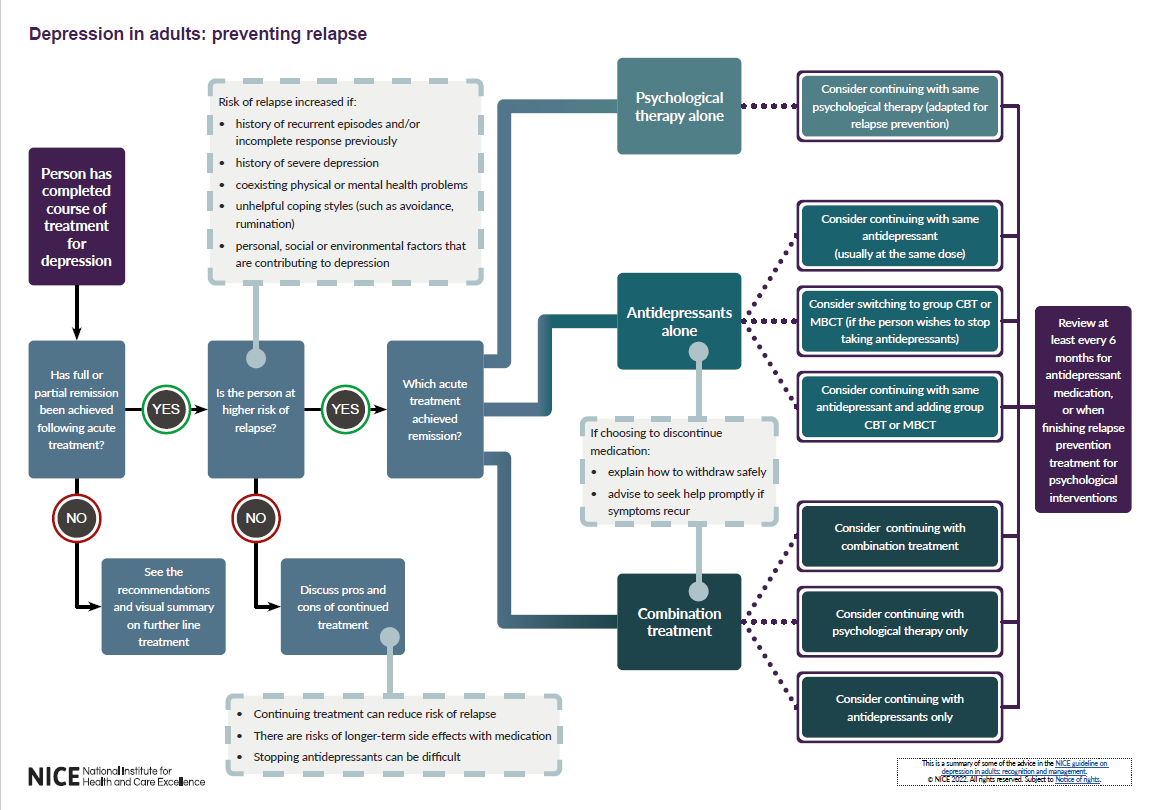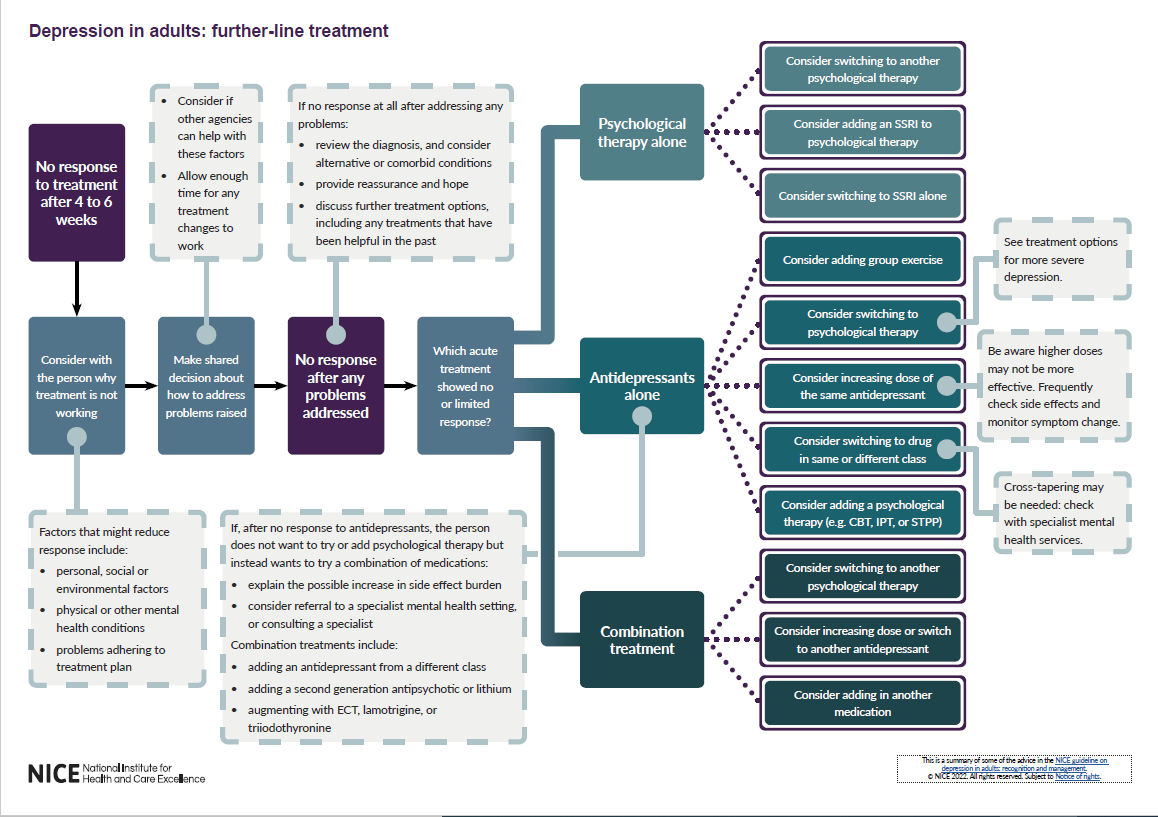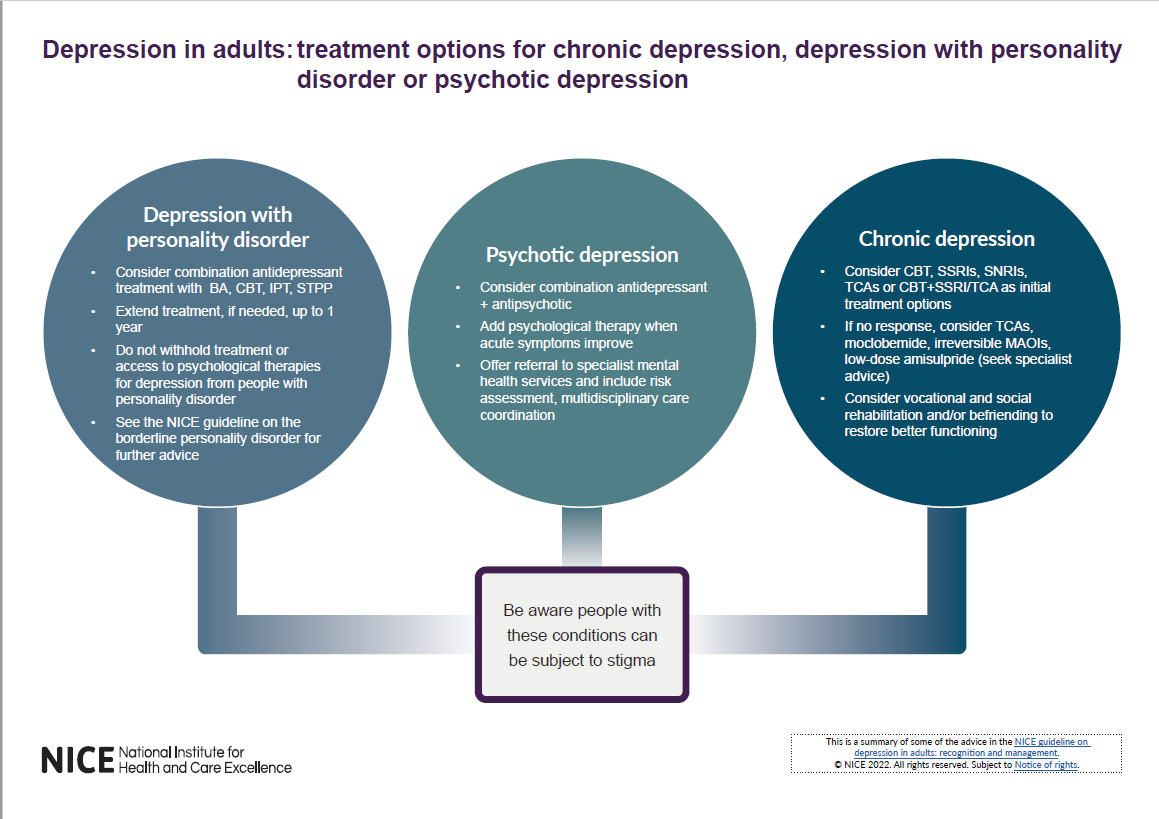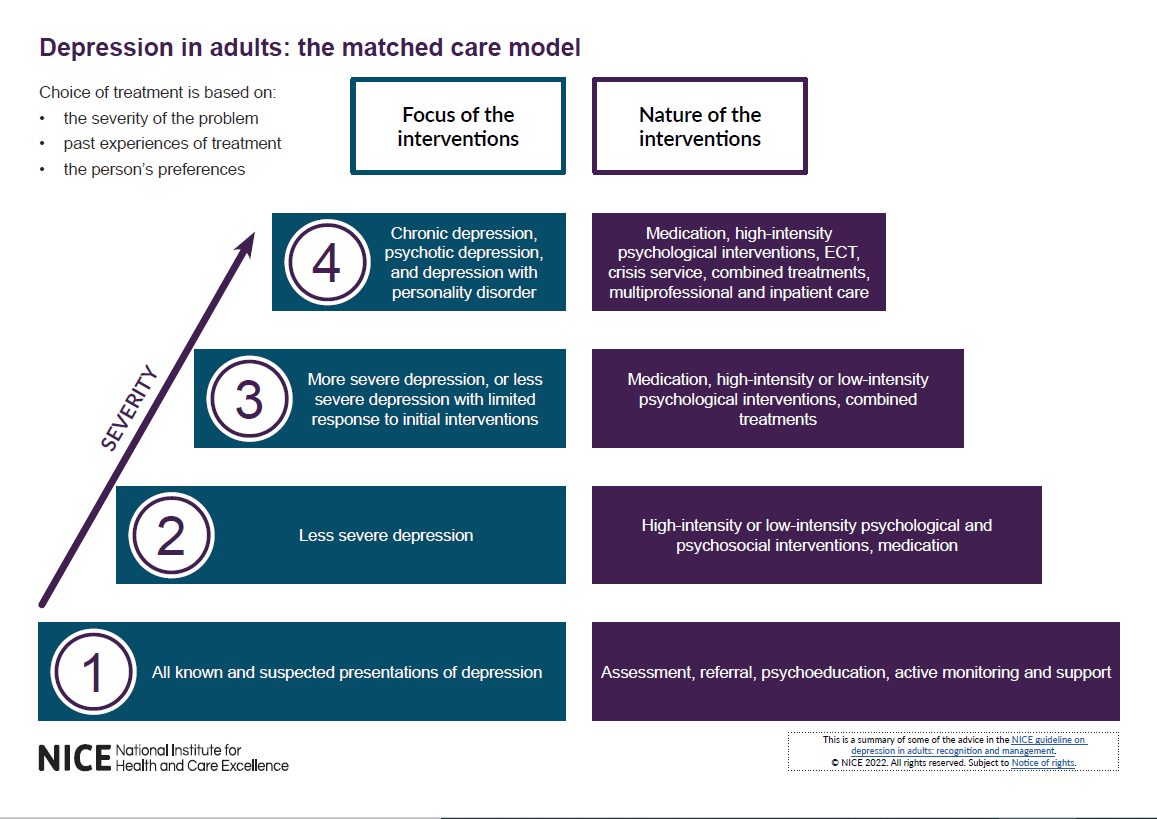Overview
This guideline covers identifying, treating and managing depression in people aged 18 and over. It recommends treatments for first episodes of depression and further-line treatments, and provides advice on preventing relapse, and managing chronic depression, psychotic depression and depression with a coexisting diagnosis of personality disorder.
NICE has also produced a guideline on depression in adults with a chronic physical health problem.
Last reviewed: 30 January 2026
We reviewed this guideline and will not update the recommendations. See the surveillance decision for further details.
This guideline updates and replaces NICE guideline CG90 (October 2009).
Next review: This guideline will be reviewed if there is new evidence that is likely to change the recommendations.
How we prioritise updating our guidance
Decisions about updating our guidance are made by NICE’s prioritisation board. For more information on the principles and process see NICE-wide topic prioritisation: the manual.
For information about individual topics, including any decisions affecting this guideline, see the summary table of prioritisation board decisions.
Recommendations
This guideline includes recommendations on:
- principles of care
- recognition and assessment
- choice and delivery of treatments
- treatment for a new episode of less severe depression
- treatment for a new episode of more severe depression
- behavioural couples therapy
- preventing relapse
- further-line treatment
- chronic depressive symptoms
- depression in people with a diagnosis of personality disorder
- psychotic depression
- electroconvulsive therapy, transcranial magnetic stimulation and treatment-resistant depression
- access, coordination and delivery of care.
See visual summaries on the recommendations for:
- discussing first-line treatments for less severe depression
- discussing first-line treatments for more severe depression
- preventing relapse
- further-line treatment
- treatment options for chronic depression, depression with personality disorder or psychotic depression
- the matched care model
Who is it for?
- Healthcare professionals
- Other professionals who have direct contact with, or provide health and other public services for, people with depression
- Commissioners and providers of services for people with depression
- People with depression, their families and carers
Guideline development process
How we develop NICE guidelines
This guideline was previously called depression in adults: recognition and management.
Your responsibility
The recommendations in this guideline represent the view of NICE, arrived at after careful consideration of the evidence available. When exercising their judgement, professionals and practitioners are expected to take this guideline fully into account, alongside the individual needs, preferences and values of their patients or the people using their service. It is not mandatory to apply the recommendations, and the guideline does not override the responsibility to make decisions appropriate to the circumstances of the individual, in consultation with them and their families and carers or guardian.
All problems (adverse events) related to a medicine or medical device used for treatment or in a procedure should be reported to the Medicines and Healthcare products Regulatory Agency using the Yellow Card Scheme.
Local commissioners and providers of healthcare have a responsibility to enable the guideline to be applied when individual professionals and people using services wish to use it. They should do so in the context of local and national priorities for funding and developing services, and in light of their duties to have due regard to the need to eliminate unlawful discrimination, to advance equality of opportunity and to reduce health inequalities. Nothing in this guideline should be interpreted in a way that would be inconsistent with complying with those duties.
Commissioners and providers have a responsibility to promote an environmentally sustainable health and care system and should assess and reduce the environmental impact of implementing NICE recommendations wherever possible.
